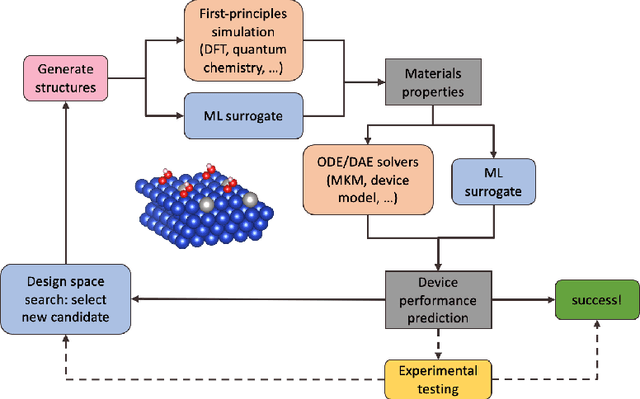Rachel C. Kurchin
Chemellia: An Ecosystem for Atomistic Scientific Machine Learning
May 19, 2023


Abstract:Chemellia is an open-source framework for atomistic machine learning in the Julia programming language. The framework takes advantage of Julia's high speed as well as the ability to share and reuse code and interfaces through the paradigm of multiple dispatch. Chemellia is designed to make use of existing interfaces and avoid ``reinventing the wheel'' wherever possible. A key aspect of the Chemellia ecosystem is the ChemistryFeaturization interface for defining and encoding features -- it is designed to maximize interoperability between featurization schemes and elements thereof, to maintain provenance of encoded features, and to ensure easy decodability and reconfigurability to enable feature engineering experiments. This embodies the overall design principles of the Chemellia ecosystem: separation of concerns, interoperability, and transparency. We illustrate these principles by discussing the implementation of crystal graph convolutional neural networks for material property prediction.
ACED: Accelerated Computational Electrochemical systems Discovery
Nov 10, 2020
Abstract:Large-scale electrification is vital to addressing the climate crisis, but many engineering challenges remain to fully electrifying both the chemical industry and transportation. In both of these areas, new electrochemical materials and systems will be critical, but developing these systems currently relies heavily on computationally expensive first-principles simulations as well as human-time-intensive experimental trial and error. We propose to develop an automated workflow that accelerates these computational steps by introducing both automated error handling in generating the first-principles training data as well as physics-informed machine learning surrogates to further reduce computational cost. It will also have the capacity to include automated experiments "in the loop" in order to dramatically accelerate the overall materials discovery pipeline.
 Add to Chrome
Add to Chrome Add to Firefox
Add to Firefox Add to Edge
Add to Edge